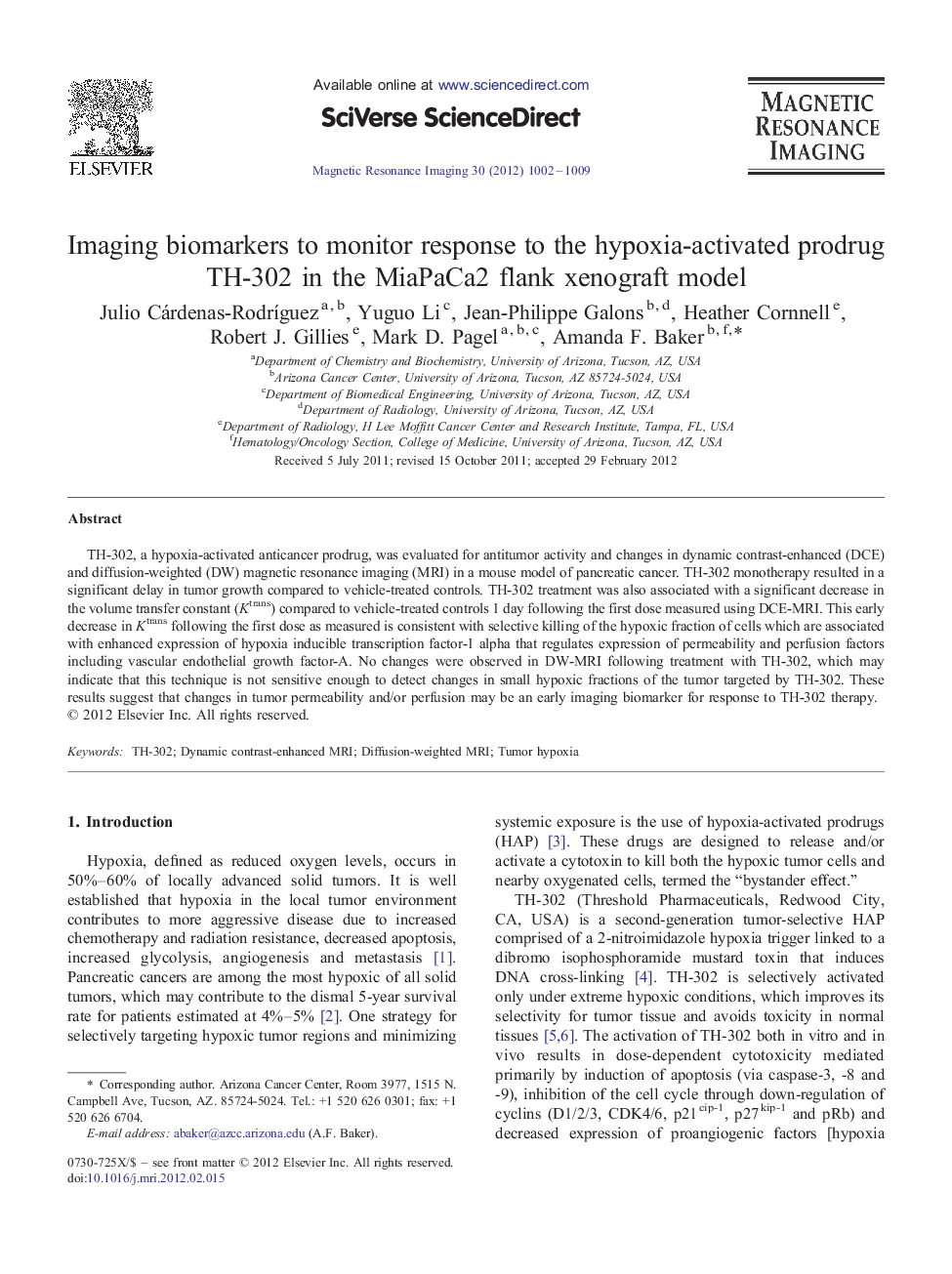| Article ID | Journal | Published Year | Pages | File Type |
|---|---|---|---|---|
| 1806934 | Magnetic Resonance Imaging | 2012 | 8 Pages |
TH-302, a hypoxia-activated anticancer prodrug, was evaluated for antitumor activity and changes in dynamic contrast-enhanced (DCE) and diffusion-weighted (DW) magnetic resonance imaging (MRI) in a mouse model of pancreatic cancer. TH-302 monotherapy resulted in a significant delay in tumor growth compared to vehicle-treated controls. TH-302 treatment was also associated with a significant decrease in the volume transfer constant (Ktrans) compared to vehicle-treated controls 1 day following the first dose measured using DCE-MRI. This early decrease in Ktrans following the first dose as measured is consistent with selective killing of the hypoxic fraction of cells which are associated with enhanced expression of hypoxia inducible transcription factor-1 alpha that regulates expression of permeability and perfusion factors including vascular endothelial growth factor-A. No changes were observed in DW-MRI following treatment with TH-302, which may indicate that this technique is not sensitive enough to detect changes in small hypoxic fractions of the tumor targeted by TH-302. These results suggest that changes in tumor permeability and/or perfusion may be an early imaging biomarker for response to TH-302 therapy.
